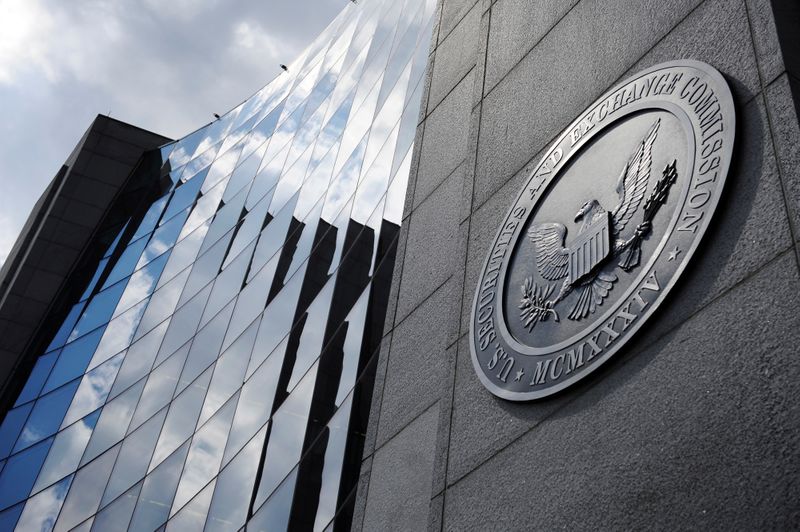WASHINGTON (Reuters) – The U.S. Securities and Exchange Commission on Monday proposed new rules for electronic trading platforms for U.S. Treasuries, corporate debt and municipal securities, aimed at improving transparency and operational preparedness in the world’s biggest securities market.
The proposal, which would be subject to public consultation, aims to address concerns about the shift to alternative trading systems (ATS) that trade government securities as well as the repurchase and reverse repurchase agreements on those securities.
The SEC has signaled for years that it planned to hone oversight on the fixed income market even as it put stiffer regulations in place for U.S. equity markets, which have generally been more transparent, industry advocates have said.
Under the new rules, ATS trading platforms will be treated more like stock exchanges, analysts expect.
SEC Chairman Jay Clayton on Monday said the proposed rules seek to ensure that “the implementation of our time-tested regulatory framework keeps pace with market developments.” The U.S. Treasury provided input, he said.
The U.S. government securities markets are among the most liquid and significant securities markets in the world, making up more than half of the outstanding debt issuance in the U.S. bond market, the SEC said. The average daily trading volume in government securities was about $835 billion over the last six months of 2019, dwarfing equities, it said.
If adopted, the new rules would better enable regulators to hold firms accountable for potential technology glitches that affect trading and assess a platform’s preparedness for cyber attacks by mandating that firms maintain backups in case of disaster or emergency scenarios, the SEC said.
The firms will also have to be more transparent about how their platforms operate.
Investor advocates have long called for more transparency and disaster-recovery measures for the ATS market. The industry has expressed concern about potentially higher compliance costs.
(Reporting by Katanga Johnson in Washington and John McCrank in New York; Editing by Sonya Hepinstall)



















